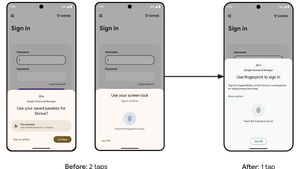JAKARTA - Kaspersky, a leading global cybersecurity company announced the launch of a new professional cybersecurity course on digital forensics called Windows Digital Forensics.
This course was created because Kaspersky sees the ability to detect digital traces of the development of an attack as one of the most important skills for cybersecurity professionals, as attacks can occur even though all precautions have been sought.
The training program was developed by Ayman Shaaban, Digital Forensic Group Manager and Incident Response at Kaspersky, which brought broad expertise in cybersecurity gained over the years.
In this training participants will study methods of collecting a variety of digital evidence, finding traces of malicious action and using time stamps from various Windows artifacts to reconstruct incident scenarios.
They will also gain expertise in analyzing browser history and emails. At the end of the training, participants will be proficient in incident coverage, evidence acquisition, log file analysis, network analysis, manufacture of Compromise Indicators (IoC), and memory forensics.
To achieve cyber resilience, organizations must prepare for incidents by managing logs centrally, keeping them for a long time, and keeping them out of all disturbances such as malicious access, or accidental loss. They also need the ability to carry out forensic investigations immediately when necessary," said Ayman Shaaban.
SEE ALSO:
In addition to obtaining widespread knowledge in the field of digital forensics from Kaspersky experts, participants will be able to apply the knowledge they just gained in virtual laboratories.
The training is part of a series of courses focused on incident responses, which allow specialists to adjust their educational path in this area.
"During the training course, you will get to know digital forensics as an important part of the incident response process and will be equipped with useful knowledge to help you handle, fortify, understand, and restore cyberattacks and minimize their impact effectively as quickly as possible", he concluded.
The English, Chinese, Japanese, Arabic, and French versions are automatically generated by the AI. So there may still be inaccuracies in translating, please always see Indonesian as our main language. (system supported by DigitalSiber.id)

















